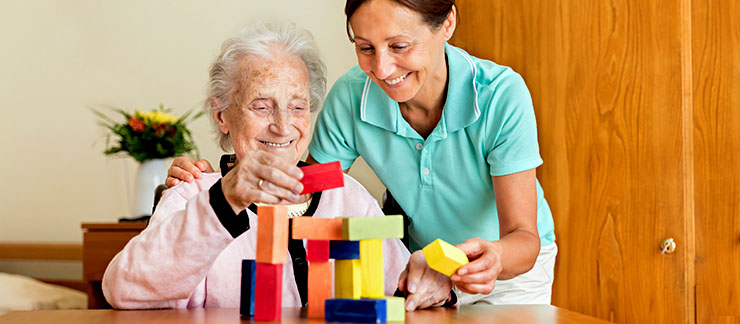Just How to Supply Personalized and purposeful Mental deterioration Care
The provision of personalized and purposeful dementia care needs a nuanced understanding of each person's special history and preferences. Treatment strategies must be customized to engage the individual in means that reverberate with their previous experiences, consequently promoting emotional connections and improving overall wellness.
Understanding Dementia Uniqueness

Treatment providers should evaluate cognitive capacities, psychological states, and behavior patterns to produce individualized treatment plans. This might include adjusting communication designs, using acquainted routines, and using significant activities that reverberate with the person's past experiences. For example, involving a person with an interest for songs via musical tasks may evoke positive memories and enhance psychological wellness.
In addition, comprehending individuality cultivates a compassionate method that respects the dignity and freedom of those dealing with mental deterioration. It motivates caregivers to pay attention actively, observe behavioral signs, and continue to be adaptable in their caregiving techniques (memory care facility charlotte). By prioritizing uniqueness, caregivers can not just improve the lifestyle for those with dementia however also build a much more extensive understanding of their special viewpoints, eventually resulting in a lot more empathetic and reliable care
Structure Depend On and Connection
Establishing trust fund and connection is basic in mental deterioration care, as it develops a helpful and safe atmosphere for individuals affected by the problem. Building these links calls for consistent, compassionate interactions that focus on the requirements and feelings of the person. Caregivers should approach interactions with empathy, recognizing the unique challenges faced by those with mental deterioration, including amnesia, confusion, and psychological distress.
Efficient communication is vital in this procedure. Caregivers need to make use of clear, easy language and non-verbal signs to convey understanding and assistance. Active paying attention shows respect and recognition, permitting individuals to reveal themselves without concern of judgment. Additionally, preserving a tranquil temperament can assist reduce stress and anxiety, fostering a complacency.
Familiarity with daily tasks and caregivers promotes a sense of security, enabling people to feel more at ease. By doing so, caretakers reinforce the person's identity, promoting self-respect and regard, ultimately leading to more powerful, more significant relationships in the context of mental deterioration treatment.
Tailoring Activities and Engagement
Involving individuals with mental deterioration via customized tasks can significantly enhance their quality of life and foster a deeper connection between caretakers and those in their treatment. Personalization is crucial, as it recognizes the unique backgrounds, passions, and capacities of each individual. Tasks must be designed to stimulate cognitive functions, promote physical movement, and motivate social interaction, all while staying satisfying and meeting.
To customize tasks efficiently, it is vital to analyze the individual's preferences and cognitive capabilities. For circumstances, some might discover delight in horticulture, while others may value songs or art. Simple, familiar jobs can evoke positive memories and give a sense of success. Additionally, integrating components of routine can offer convenience and stability, permitting individuals to involve with activities much more with confidence.
Caretakers can boost engagement by taking part along with the people, cultivating a supportive and interactive setting. It is additionally essential to remain adaptive and flexible, changing tasks as needed based on the person's power levels and mood. Ultimately, purposeful engagement through tailored activities not only boosts individuals with dementia however also enhances the caretaker connection, promoting common enjoyment and understanding.
Effective Communication Methods
Efficient interaction is important in mental deterioration care, as it cultivates a sense of link and understanding between caregivers and people experiencing cognitive decrease. Employing effective interaction strategies can considerably improve the high quality of communications and minimize irritation for both events.
To start with, utilizing easy, clear language is essential. Brief sentences and familiar words help individuals comprehend and respond much better. Additionally, preserving a calmness and favorable tone can produce an encouraging atmosphere, which is vital for people that may charlotte care home feel baffled or anxious.
Non-verbal interaction plays a significant role. Caregivers should pay focus to body language, faces, and motions, as these cues can frequently convey even more than words - memory care facilities charlotte. Developing eye get in touch with and utilizing mild touch can likewise strengthen links and convey compassion
Energetic listening is another key part. Caregivers ought to be mindful, permitting people to express themselves fully, even if their speech is fragmented or vague. This lionizes and encourages more open communication.
Last but not least, validating experiences and sensations is vital. Acknowledging emotions, regardless of their basis actually, can provide convenience and strengthen the caregiver-individual connection, promoting a much more encouraging atmosphere.
Sustaining Family Participation
Household involvement plays a significant function in the general care and support of individuals with mental deterioration. Involving relative develops a collective environment that boosts the high quality of care, fosters emotional links, and makes sure that the distinct requirements of the person are met. Member of the family commonly possess invaluable understandings into the individual's background, choices, and habits, which can be critical in developing personalized treatment approaches.

Furthermore, member of the family can be urged to participate in daily treatment activities, such as involving in meaningful conversations or assisting with familiar routines. This not only helps suffer the person's feeling of identification however likewise enhances domestic bonds. Eventually, by promoting a comprehensive technique that values household contributions, care providers can improve the overall experience for both people with dementia and their enjoyed ones.
Verdict
Finally, delivering meaningful and customized mental deterioration treatment demands a thorough understanding of each individual's unique history and preferences. Establishing count on and rapport through caring communications is essential for creating a secure environment. Tailoring activities to resonate with individual interests enhances emotional health and promotes dignity. Reliable interaction strategies even more support this procedure, while actively involving household participants enhances the caregiving experience and fosters deeper links. Jointly, these techniques add to boosted quality of life for individuals with dementia.
The arrangement of tailored and purposeful mental deterioration care calls for a nuanced understanding of each person's one-of-a-kind history and choices. By doing so, caretakers enhance the person's identity, advertising dignity and respect, ultimately leading to more powerful, extra meaningful relationships in the context of mental deterioration care.
Involving individuals with mental deterioration through customized activities can significantly boost their quality of life and cultivate a deeper link between caregivers and those click to find out more in their care.Family members involvement plays a considerable duty in the overall treatment and assistance of individuals with dementia. Ultimately, by cultivating a comprehensive strategy that values household contributions, care companies can enhance the total experience for both people with dementia and their loved ones.